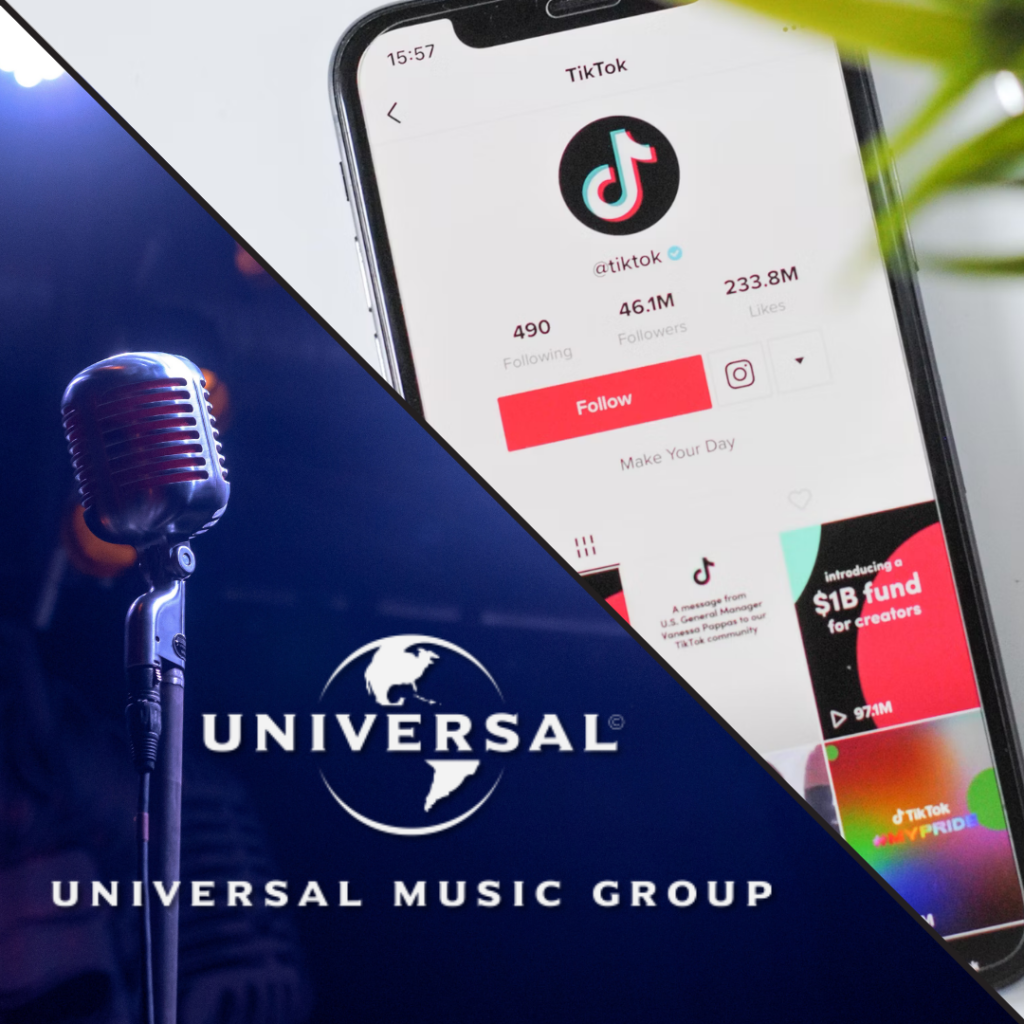New beef between two marketing giants has rendered thousands of trending videos silent. After a breakdown in talks between TikTok and Universal Music Group, the music juggernaut pulled its entire catalogue from the platform. As a result, videos featuring the works of Adele, Harry Styles, SZA and more remain available on mute. It’s an odd look for an app best known for earworms and a label that directly benefits from viral trends. This highly public fallout has shaken up the music and social media industries. It’s also left many artists and creators caught in the crossfire. So how did we get here and what does it mean for the future of content creation? Let’s explore in more detail.
The History of TikTok and Universal Music Group
TikTok and Universal Music Group first struck a deal back in 2021, allowing for use of their content library. The deal’s been beneficial for all parties, creating viral moments for established and upcoming artists while keeping users on the app.
That marriage ended on January 31st when the previous deal expired after a series of rejected conditions and disparaging comments. Both sides have issued public statements outlining their priorities, largely blaming the other for unfair treatment.
An Increasingly Public Feud
In an open letter UMG outlined three critical issues preventing contract renewal. These have included “appropriate compensation for our artists and songwriters, protecting human artists from the harmful effects of AI, and online safety for TikTok’s users.” The label alleged TikTok, “attempted to bully us into accepting a deal worth less than the previous deal, far less than fair market value and not reflective of their exponential growth.”
UMG also accused TikTok of removing lesser known artists tracks as an intimidation technique during negotiations, which has been denied.
In their own statement, TikTok said “It is sad and disappointing that Universal Music Group has put their own greed above the interests of their artists and songwriters.” Despite Universal’s false narrative and rhetoric, the fact is they have chosen to walk away from the powerful support of a platform with well over a billion users that serves as a free promotional and discovery vehicle for their talent.”

The app also communicated that TikTok, “has been able to reach ‘artist-first’ agreements with every other label and publisher. Clearly, Universal’s self-serving actions are not in the best interests of artists, songwriters and fans.”
Immediate Aftermath
The speed of this announcement took many by surprise. Creators received little warning, waking up to find their content rendered mute. Users feeds were flooded with silent videos and reactions. Even artists managed by UMG could no longer promote their music on their own accounts, let alone feature it in others.
Creators are a savvy bunch though and quickly adapt with new techniques. They’ve responded with slowed down versions of popular songs, unofficial AI copies, and characteristically stock music to highlight the current void. While they’ve created new trends, longer-term solutions will be needed in the case the disagreement drags on.
Larger Implications
Where there’s conflict there’s opportunity. Both Youtube and Meta have retained their agreements with UMG, creating stark sonic differences between apps. These platforms have the most to gain, with potential to pull fans of UMG’s artists away from TikTok. After all, popular trending audio is what built TikTok up in the first place.
Meanwhile over on TikTok, emerging artists with other labels are poised to fill the current void. Independent artists will similarly benefit. New trends will continue to emerge as creators will innovate with new sound bites, spoken words, and live covers. The cycle will continue with or without the world’s most popular artists.
As for the label, UMG is hardly hurting for cash. By their own measure TikTok accounts for just 1% of yearly revenue, illustrating just how little Bytedance was paying for access. They will continue to profit from ticket and album sales, as well as plays on other platforms.
In short, it’s a dynamic change for all involved parties, but not one they won’t recover from. At least for the time being. Longer term, it will be notable how other labels react. Further changes to the relationship between music owners and social platforms have potential to hurt both parties.
The Future of TikTok and Universal Music Group
So what happens next?
Both TikTok and Universal Music Group will continue to face pressure from their own camps. Creators and brands will push TikTok to pay a larger share for usage rights, while big artists themselves will continue to speak out against the label’s bigger moves. It’s hard to imagine these parties won’t come to some sort of agreement. In the meantime expect both sides to dig, leaving creators and artists to do what they do best; innovate.